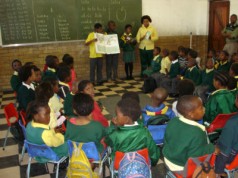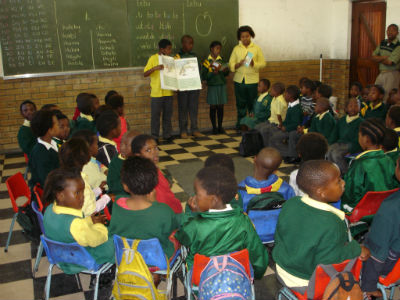Xhosa Language Teaching in South African Primary Education
16/04/2014In South Africa, ten Western Cape schools have agreed to participate in a pilot project by the South African government. By doing so, they have agreed to teach the Xhosa language to their pupils in grade 1.

On website IOL News, Ilse Fredericks discusses a new project set up by the Department of Basic Education of the South African government.
To improve Xhosa language teaching, ten schools will educate their Grade 1 students in the language. Paddy Attwell, spokesman for the Western Cape Education Department, stated that these lessons will be provided by five teachers. He also stated that all schools have extended their school day by 24 minutes to accommodate for the lessons, and that the materials will be provided by the Education Department.
According to Fredericks, last May, Basic Education MEC Angie Motshekga announced a new policy that is planned to start later this year. This policy will make African language teaching mandatory for schools. The new rule is preceded by a pilot in Grade 1 that will be held in all South African provinces.
Of course, many new African language teachers will be needed when this new policy comes into effect: Fredicks states this is the reason for the University of the Western Cape to start a new degree aimed to educate more language teachers. According to Dr Vuyokazi Nomlomo, who co-ordinates the University project, African languages were not very important in South African education. However, she states that the Department of Higher Education and Training discovered a need for more institutions that offer Bachelor of Education degrees for the 13 to 18 foundation phase.
Nomlomo states that pupils who spoke African languages at home used to be obliged to switch to English education after Grade 3, which has proven to have ill effects on their school performances. In fact, she says, The best South African schools teach their pupils in their home language. Moreover, she believes the new plans of the Education Department might benefit the status of the African languages.
However, many African language teachers will soon retire and there aren’t many young teachers available. Fredricks states the new degree offered by the University of the Western Cape aims to close this gap. In addition, it also hopes to up the academic literacy skills of its students, as Nomlomo says students often lack these skills in their home languages.

